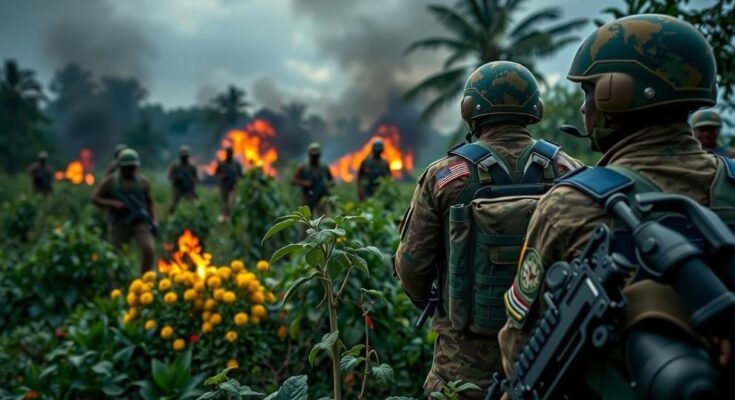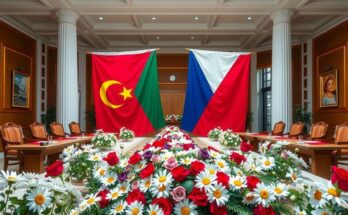Despite a recent ceasefire, fighting has reignited in eastern Congo between the Congolese army and M23 rebels, with both sides claiming casualties. Increased tensions are exacerbated by Rwanda’s alleged involvement, which has been denied by Kigali. Key diplomatic meetings are scheduled, yet the humanitarian crisis continues to deepen with millions displaced.
Fighting has rekindled in eastern Congo between the national army and the M23 rebel group, marking yet another breach of the ceasefire that was recently established. Reports indicate that the Congolese army claimed to have dealt significant blows to the rebels in the Lubero region of North Kivu province. In turn, M23 representatives have stated that they were also attacked early Tuesday by government forces. The conflict has persisted amidst ongoing discussions of mediation and peace efforts.
Eastern Congo has become a battleground for numerous armed factions, with the M23 group being one of over 100 such organizations. This conflict not only underscores the region’s instability but has also exacerbated a humanitarian crisis, displacing over 7 million individuals. The international community has raised concerns regarding Rwanda’s involvement, accusing its government of supporting M23. Despite Rwanda’s denials, incidents like troop buildups near the border have fueled tensions and distrust between the two nations.
The resurgence of fighting in eastern Congo serves as a stark reminder of the fragile peace agreements and the complex geopolitical dynamics in the region. With ongoing ceasefire violations and allegations of foreign intervention, the path to sustainable peace remains difficult. The upcoming meeting between Presidents Tshisekedi and Kagame is critical as it seeks to address these underlying tensions and chart a way forward amidst ongoing conflict.
Original Source: www.newsday.com




